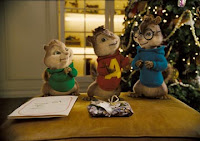I first met Joyce Seabolt during an early Saturday morning class. I've since forgotten which writing class it was, I have however, never forgotten Joyce. I can still see her sitting there, listening intently, taking notes. She came to class fully prepared. I've also never forgotten her words. "I want to be a writer." I believed her, we all did. Over these last five plus years I've watched her make sale after sale. She's organized, determined, and giving. She cares about her work, her audience, and other writers. She's a great friend, and a cheerleader for all of us who struggle to get our ideas and thoughts onto paper. You recently made another sale to the Chicken Soup series? Yes. Chicken Soup just accepted my third story. Chicken Soup for Catholic Living will be out this month.
My story tells about how I reluctantly agreed to work at the Church Homeless Shelter for the midnight to 7 AM shift. I went in with preconceived notions of who I would find there...drunks, drug addicts and derelicts. What I found was people...people just like my family, my friends, and me. Spending one night in a homeless shelter taught me a valuable lesson. The only thing that makes the homeless different from me is a home!
I've been to one of your book signings. How important is it for a writer to help market their work?Marketing is crucial to the success of a book. Writers are expected to participate in generating a "buzz" the first three months after the book comes out. A buzz is simply people talking about your book. Writers do this by posting reviews on Amazon, doing book signings, and going out to meet the public. I've met with religious groups, ladies groups, Toastmasters groups, Book Club groups and nursing groups. Since I am a nurse and one books was for the nurses, I went to a different health care facility ever day during Nurse's Week.
How would you describe the moment you found out that your first manuscript was going to be published? How did you celebrate?I was ecstatic! I called my family and my writer friends. My best writer friend and I did the "Happy Dance" together even though she lives in New York. We knew when we met at a Writer's Conference that we would be published someday. (I did the "Happy Dance" with her when she was published a short time later.)
I know you work full-time. How do you find time to write and market your writing? Can you describe a typical day?I work evening shift, so I set time from 10 AM to NOON each day to write. During that time I write or do something directly connected to writing. I may schedule book signings or do research for my next project. Since I am planning to get into the "SLICKS" (magazines) I'm doing a lot of e-mail query letters to women's magazines.
Can you tell us what your are currently working on?Around the holidays I avoid deadlines...too much stress. I'm researching my latest article idea about how to determine if you have winter blues or Seasonal Affective Disorder. I'm also working on my book signing schedule.
What writing advice do you have for the beginning writer?Don't get discouraged by rejections, they are part of a writer's life. If you absolutely can't handle rejection, don't submit your writing for publication! Keep writing family, friends, and the fun of writing. You don't have to be published to be a writer. A writer's life is interesting and rewarding even if you never publish a thing. But for me, getting published was soooo worth the rejections!
Finally, have you always wanted to be a writer?No, I always wanted to be a nurse and I've been one for forty-five years. When planning for something to do in retirement, I read an article that said to look back into your past for things you
really enjoyed and rekindle that spark of interest. I remembered that I loved English, especially writing (and editing) my poetry assignments. I decided to go back to college and learn how to do it right. Apparently, I learned to write right.
Joyce has been published in
Reader's Digest, Guidepost, and numerous nursing magazines. Her work has also been published in three
Chicken Soup for the Soul Books and two
Gettin' Old Ain't for Wimps Books. She is looking forward to retirement when she can devote all her time to writing.








